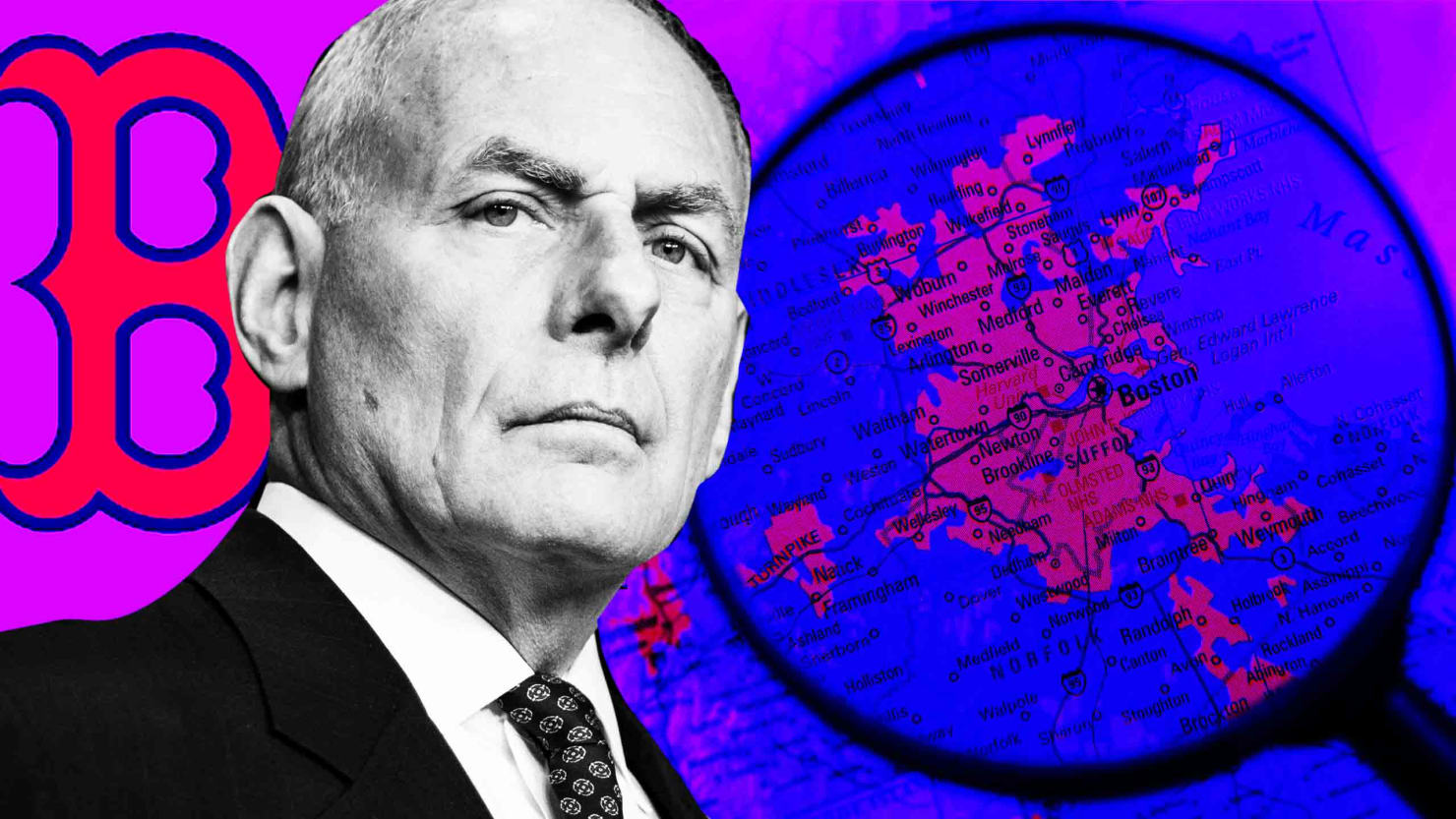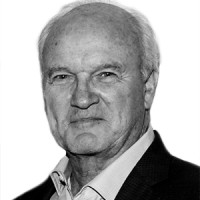FATE
The Boston Neighborhood That Made John Kelly
On those long days when Kelly might wonder why he took the job, he will, no doubt, think of how he was raised on Bigelow Street in Brighton.

OPINION
PHOTO ILLUSTRATION BY LYNE LUCIEN/THE DAILY BEAST
On a brutally dangerous late spring day in 1945, a young Marine Corps rifleman ran across the scarred earth, through shrapnel coming from Japanese mortars on Okinawa, desperately looking for a foxhole in the hope of finding a fleeting moment of safety.
He was 18-year-old Bob Crane from the Brighton neighborhood of Boston, and being a sensible young man, he was scared.
“Petrified,” he said the other day.
At 90, having survived Okinawa as well as a long career in Massachusetts politics he is still struck by the randomness of fate.
“I end up in a foxhole with a guy from of all places in the world, Brighton. Leo Edward Kelly was the other guy’s name,” Bob Crane recalled with a laugh. “John Kelly’s uncle. Imagine that. And a great guy too.”
After the war Crane went to Boston College, put his name on the ballot for a seat in the Massachusetts legislature, won, got married, and began raising his family on Bigelow Street in Brighton. There, he was four doors down from the Kelly family, a growing tribe with a son, John—Leo’s nephew.
“I remember him,” Crane was saying. “I remember General Kelly very well as a little boy. Kind of a shy kid. Given the job he just got, I hope to God he’s over being shy.”
Their neighborhood was a familiar pocket and portrait of 1950s post-war America. Largely Irish and Catholic, nearly each apartment and almost every two-family home touched by the impact of World War II and Korea. There were more veterans on the block than there were hydrants. And there were gold star mothers too.
The sidewalks echoed a sense of duty and a sense of history just past. Memorial Day and July Fourth brought everyone and everything to a halt. And for those families that had lost a son in either war, Christmas Eve always had a touch of the tear for the boy, the brother, husband, or father lost.
Job security was paramount after the war. And city jobs—mailmen, firemen, cops—were sought after because they came with a routine, with benefits, with a predictable paycheck.
The great migration to suburbia was still a few years distant. Divorce was rare. Peer pressure was a strong factor in neighborhoods like the Oak Square section of Brighton and along Bigelow Street. The church—the Catholic Church—was still a moral force. Vietnam had not yet destroyed so much of our faith in government, our view of politics and politicians.
This was John Kelly’s world then and it is John Kelly’s world today as he takes over as White House chief of staff: devotion to duty, to the country, to the chain of command, to family, to loyalty, to honor, courage, to history, to the memory of those who sacrificed all.
This past weekend, General Kelly finally agreed to the request of the president of the United States to take the job as White House chief of staff. He and his wife Karen were in California visiting their oldest son, Marine Corps Major John Kelly who is about to be deployed to duty overseas.

No comments:
Post a Comment